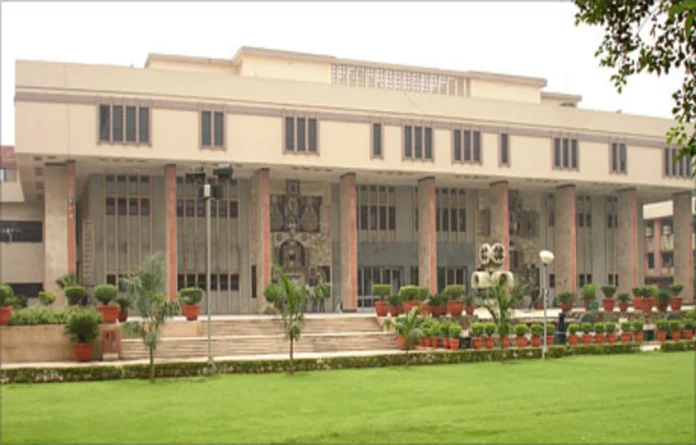The Delhi High Court on Thursday dismissed a petition challenging the release of ‘Udaipur Files: Kanhaiya Lal Tailor Murder,’ based on the murder of tailor Kanhaiya Lal in June 2022, and scheduled to release on August 8.
The Division Bench of Chief Justice DK Upadhyaya and Justice Tushar Rao Gedela dismissed the plea filed by Mohammad Javed, one of the accused in the murder case of Kanhaiya Lal.
The High Court, however, issued notice on the main petition against the order passed by the Union Ministry of Information and Broadcasting (MIB) clearing the certification of the film.
On August 6, the Ministry dismissed the revision petitions filed by Javed and Jamiat Ulema-i-Hind President Maulana Arshad Madani, pursuant to the order passed by the Court.
On August 1, the Central government had acceded to withdraw the cuts made to the film and undertook to decide on the film certification by August 6, after the High Court questioned the Union government’s power to recommend six cuts to the film.
The Division Bench observed that the petitioner could not satisfy the Court that a prima facie case was made out in his favour (for interim relief). The producer has invested huge amount in producing the film. In case the exhibition of the film was stayed, the balance of convenience would be disturbed, it added.
Appearing for the petitioner, Senior Advocate Menaka Guruswamy requested the High Court to watch the film and decide for itself, whether it violated fair trial or not, whether it contained hate speech or not.
She argued that no accused had ever approached a court in this country saying that a movie violated fair trial. The name of the film was exactly the same as the trial in the case. Even the dialogues were taken from the charge sheet. If this was allowed and a precedent was created, then no accused in the country would have a right to fair trial. Fair trial would die if this was allowed in a case like this, she added.
Representing the CBFC, Additional Solicitor General (ASG) Chetan Sharma said that the movie was viewed by the Cabinet Minister, two Joint Secretaries and other officials, who applied their mind to give a reasoned order on August 6. The High Court had consciously not gone into the merits of the film and kept arm’s length distance with subject matter or its perception or the title or content. The government completely abided by the Court verdict and gave the order after taking every party into consideration. This was as fair as it could go. There was argument made by the petitioner as to how the order was bad.
The ASG further said the film faulted only in the aspect that Centre’s exercise of jurisdiction was not in accordance with Section 6 of the Cinematograph Act as revision was a limited jurisdiction.
Appearing for the film’s producer, Senior Advocate Gaurav Bhatia contended that no case for any interim order was made out. He apprised the Bench that tickets have been booked, and the film was scheduled for release on Friday.
Bhatia said that the producing company had invested its lifetime savings in making the flick, while the film was earlier delayed.
The screens were made available now, but they may not be available for next six months. Moreover, there was no mention of either the name of the accused or any specific theme attributing specific role to the accused in the film.
No direct link had been shown by the petitioner that the movie would affect his trial.
The film was given a valid certificate by the sensor board. Though it was based on the crime, the movie did not claim to be an exact narration of the crime. It did not vilify any community. The film gave a positive message.
The MIB had said in its order that the competent authority had perused all materials, considered submissions of all parties and the CBFC had certified the film after following the procedure established by law, he pointed out.
Guruswamy further argued that the petitioner had presented details from charge sheet regarding portrayal of the petitioner to the committee constituted under Section 6, but it did not deal with the charge sheet or the dialogues.
The film did not seek to arrive at the truth, but the trial. A trial existed in a context of society and courtroom where there was a judge, court masters, witnesses and the public. The petitioner was 19, when he was arrested. The film termed the petitioner as a conspirator of murder and named the crime very categorically, she added.


